- Home
- Elizabeth Gaskell
Uncle Peter Page 5
Uncle Peter Read online
Page 5
At last, the front door opened, and the visitor departed. They were now alone -- Charles Merton and his wife. An irresistible impulse came over the old man: he walked up to the door, and rung the bell.
It was opened by an old servant of Captain Merton who had remained with them through all their reverses, and who recognised him at once. He ushered him at once up stairs He had nerved himself for a scene -- the thing, of all others, he most dreaded; but, as is not uncommonly the case in such circumstances, no scene was enacted. They were glad to see him, and of course surprised. Charles Merton introduced him to his wife; a glance at whom dispossessed Uncle Peter at once of the last of his prejudices, if any yet remained in her disfavour.
All seemed to be natural, and in the common course of things; if he had spent every evening with them for months he could not have felt more at home.
They talked of ordinary subjects; wished to order tea for him, which he declined; and then, when he rose to depart, Charles Merton said, in his old frank tones--
“You will let us see you again, uncle; I have not yet introduced you to one of my family -- the little Helena.”
“I will breakfast with you tomorrow,” said Uncle Peter, if you will permit me, taking you on my way back from my spring; but I need not an introduction to Helena -- we are already friends;” and he explained their previous meeting, and Lady Helena was surprised of course that she had not at once detected who the child's companion had been.
He came the next morning to breakfast, and afterwards proposed a walk to his nephew, in the course of which, by a series of blunt questions, he ascertained the whole history of his affairs.
“And why did you not let me know all this before?” said Uncle Peter, when he had learned everything.
“I wrote to you before we left England, and told you much of what you have asked me about now; when I received no answer to my letter, it can scarcely surprise you, I think, from your knowledge of my character, that I did not write again.”
“Wrote to me before you left England? I never got your letter. I have never heard from you since your marriage.”
“It is surprising that you did not receive my letter; I carried it to the post myself, too anxious at the time about its result not to take every pains that it should reach its destination. I did not tell my wife then that I had written it; she knew all, end was reconciled to the worst. I longed indeed that that worst might not come, but I would not destroy her heroic fortitude by suggesting a hope of assistance in our difficulties, which might be, as indeed it proved, delusion. And yet,” he said, thoughtfully, “I am glad, dear uncle, you never got my letter. Had I got easily out of my troubles, I should never perhaps have learned, as now I have, to overcome so completely the habits which had led to them. I should never have known my wife, too; never seen such strength and gentleness of character in her as I did not believe existed upon earth. And more, I should never have known myself, my selfishness and sin. I have learned much intellectually in these last few years, for I have studied hard with a hope to turn my labours to account in some way so as to improve our position. But I am chiefly of all thankful to the moral lessons which I have received from her, and which I feel to be the most valuable and the most indelible of all.”
Uncle Peter was as sadly perplexed about the missing letter; too long an interval hall elapsed since it had been written for him to entertain any chance of discovering what had become of it; it was therefore with very little hope of obtaining any information on the subject that he said to his servant, when he came into his room that evening--
“Thompson, I have learned this morning that a letter sent to me by my nephew four years ago, ono of great importance, miscarried, and never reached me. ”
“I always said, sir, you never got it,” exclaimed the old servant, quickly and indignantly.
Uncle Peter prosecuted his inquiries, and learned that the letter had in due course arrived at Hursleigh, that it had made a considerable sensation in the servants' hall, where Charles Merton had ever been held “in high consideration,” and where his estrangement from his uncle and Hursleigh had been unceasingly deplored. Thompson remembered the letter coming; he remembered the expectations which had been formed about it among the old servants; he remembered its being taken into the saloon by a new footman recently engaged, who had not been present at the discussion among them about the letter, and who knew nothing of the Captain. He remembered himself asking Thomas how his master looked when he received the letter, and Thomas saying that he did not know there was a letter for Mr. Merton; that he had given all three to Mrs. Howard. He always had his suspicions that his master never got that letter; and he was plunging into a history of the very unfavourable prepossessions entertained from various little circumstances against Mrs. Howard in the servants' hall, but was checked decisively by his master, who did not suffer the familiarity of an old servant to go so far as to listen to reflections from him upon a relation and a guest of his own.
But the case certainly did look awkward against Mrs. Howard; he thought long how it would be right to act concerning it; the footman, Thomas, had long since left his service, having been discovered to be too impracticably stupid to remain. He felt that to charge Mrs. Howard with the suspected act would be only to meet with the most calm denial of all knowledge of it; nor did he see any means of bringing it home to her, even if he did not shrink, as he did, from the publicity which must attend any attempt to do so.
Hursleigh is now a happier mansion than it has been for many years; it has been just refurnished, and music, and flowers, and the merry voice of childhood, adorn its once deserted apartments. It is not a place, even now, where much entertainment of the neighbourhood goes on; but Lord Elsmore and his family are ever welcome guests, and sometimes some of the neighbouring families are invited to meet them. Mrs. Howard is never seen there, nor her daughters; it is said that she received one day a letter in the cramped hand of Uncle Peter, which arrived when she was in the midst of a select circle of morning callers; that she read tho early part of it aloud,which described the entire restoration of the health of her “dear relative,” and of his purpose of speedily returning to Hursleigh; but suddenly it was noticed that she stopped short, started, read on rapidly to herself, . turned pale, rose from her chair, and with a hurried apology left the room and her visitors. A bell was speedily rung, and it is said that the small jug of very hot water which Hannah then carried upstairs in answer to it, was really used for the purpose for which it was demanded -- to dilute a very considerable dose of salvolatile.

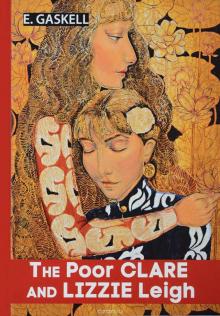 Lizzie Leigh
Lizzie Leigh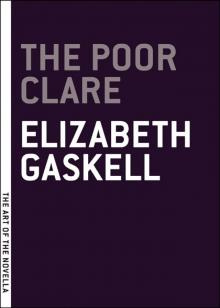 The Poor Clare
The Poor Clare Lois the Witch
Lois the Witch North and South
North and South Sexton's Hero
Sexton's Hero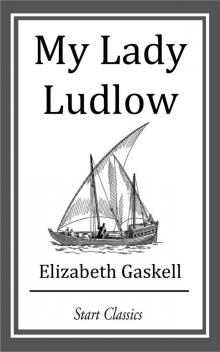 My Lady Ludlow
My Lady Ludlow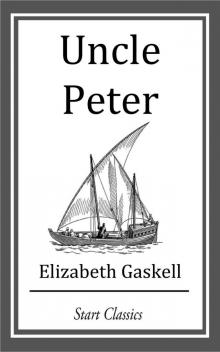 Uncle Peter
Uncle Peter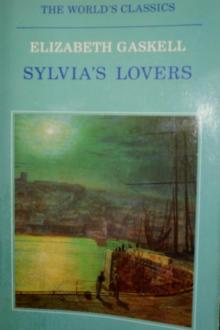 Sylvia's Lovers Elizabeth Cleghorn Gaskell
Sylvia's Lovers Elizabeth Cleghorn Gaskell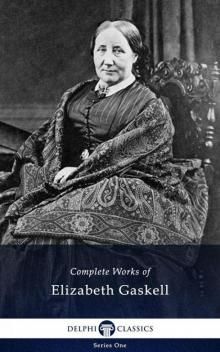 Delphi Complete Works of Elizabeth Gaskell
Delphi Complete Works of Elizabeth Gaskell The Grey Woman
The Grey Woman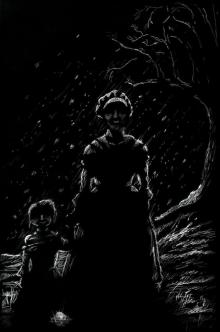 The Old Nurse's Story and Other Tales
The Old Nurse's Story and Other Tales Cranford
Cranford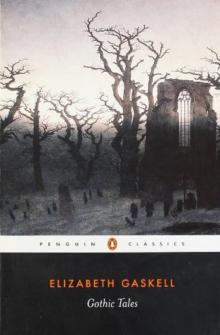 Gothic Tales
Gothic Tales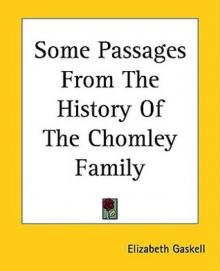 Some Passages From the History of the Chomley Family
Some Passages From the History of the Chomley Family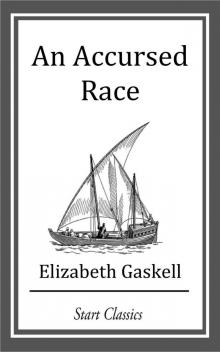 An Accursed Race
An Accursed Race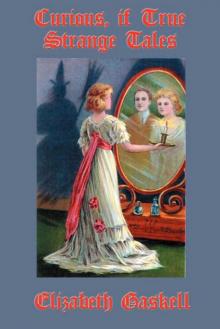 Curious, if True: Strange Tales Elizabeth Cleghorn Gaskell
Curious, if True: Strange Tales Elizabeth Cleghorn Gaskell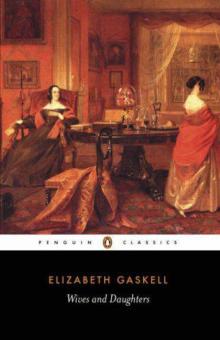 Wives and Daughters
Wives and Daughters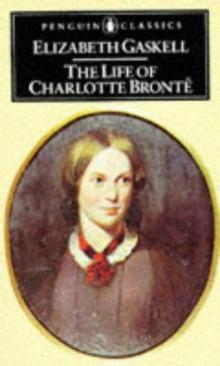 The life of Charlotte Brontë
The life of Charlotte Brontë